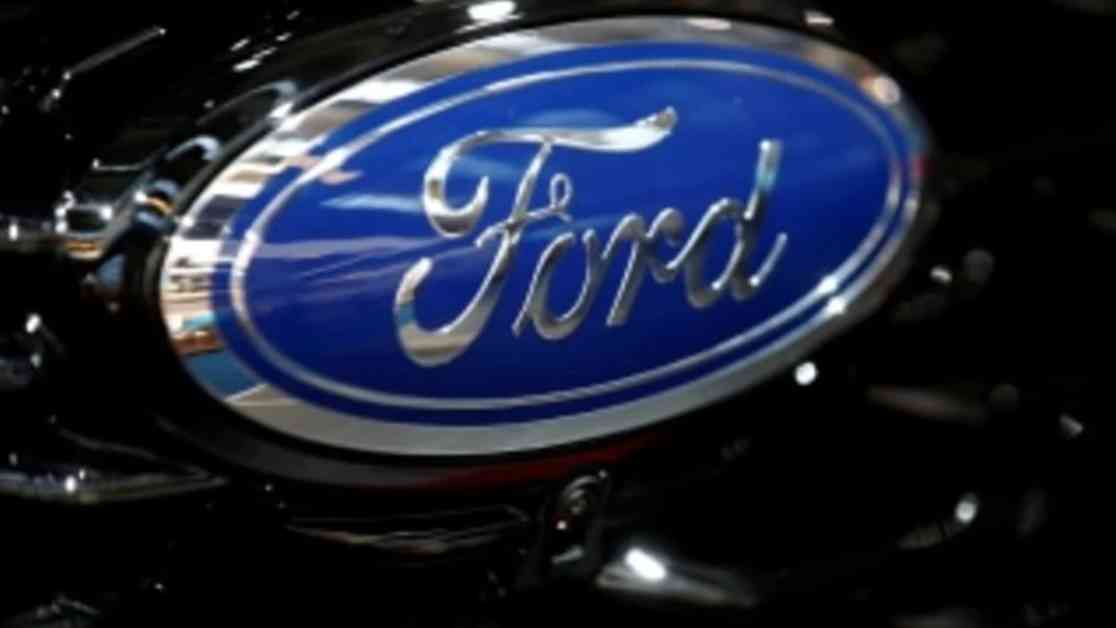Ford’s Three-Row Electric SUV: A Look at the Industry’s EV Challenges
In a surprising turn of events, Ford Motor Company recently announced the cancellation of its highly anticipated three-row electric SUV, which was set to hit the market in 2025. The decision to scrap the project before it even launched reflects a broader trend in the automotive industry, as automakers grapple with the challenges of transitioning to electric vehicles (EVs) in a market that has been slower to adopt battery-powered technology than anticipated.
The Rise and Fall of Ford’s Three-Row Electric SUV
At a packed investor day in Dearborn, Michigan, last year, Ford Motor executives unveiled their ambitious plans for the three-row electric SUV, which they described as a “personal bullet train” that would revolutionize the segment. Doug Field, Ford’s head of EVs and a former executive at Apple and Tesla, touted the vehicle as a game-changer that would set Ford apart in a crowded field of competitors.
However, just 15 months later, the personal bullet train was officially derailed as Ford announced the cancellation of the project. The decision to kill off the three-row electric SUV was attributed to a shift in market dynamics, with consumers showing less enthusiasm for EVs than initially anticipated. Marin Gjaja, Ford’s chief operating officer for its EV division, acknowledged that the company had been struggling to keep up with changing consumer preferences and had to make the difficult decision to pivot away from the electric SUV.
Ford’s New Focus on Hybrid Technology
In light of the cancellation of the three-row electric SUV, Ford executives announced that the company would instead focus on developing hybrid three-row SUVs. This shift in strategy represents one of the most significant EV product pivots to date and is expected to cost the company up to $1.9 billion. While removing a key vehicle from Ford’s EV lineup may have disappointed investors, Ford’s leadership is confident that the move will ultimately lead to more sustainable and profitable EV offerings in the future.
Ford CEO Jim Farley emphasized the importance of making tough decisions to ensure the company’s long-term success, especially in the rapidly evolving EV market. By doubling down on hybrid technology and leveraging the company’s strengths in pickup trucks and commercial vehicles, Ford aims to position itself as a leader in the transition to electric mobility.
The Road Ahead for Ford’s EV Strategy
Despite the setback of the canceled three-row electric SUV, Ford remains committed to its electrification goals and is actively working on new EV projects. The company recently announced the delay of its highly anticipated electric version of the F-150 truck until 2027, citing the need to refine the vehicle’s technology and ensure its profitability. In the meantime, Ford plans to introduce an electric van to its lineup as it continues to invest in EV development.
Looking ahead, Ford will provide an update on its EV plans in the first half of 2025, with a focus on affordable EVs from its “skunkworks” team based in California. This team of engineers and software specialists is tasked with developing innovative electric vehicles that will appeal to a wide range of consumers and help Ford stay competitive in the evolving EV market.
The Shift Towards Hybrid Technology
While Ford’s decision to prioritize hybrid technology over pure EVs may have surprised some industry observers, it reflects a broader trend among automakers to embrace hybrid vehicles as a bridge to full electrification. By combining electric motors with gasoline-powered engines, hybrid vehicles offer a more accessible and familiar option for consumers who may be hesitant to make the switch to fully electric vehicles.
Ford’s focus on hybrid technology is seen as a pragmatic approach to navigating the complexities of the EV market and ensuring the company’s financial sustainability. While the cancellation of the three-row electric SUV may have been a costly decision, many analysts agree that it was the right call in the long run, given the challenges of achieving profitability in the EV space.
General Motors’ Approach to EVs
In contrast to Ford’s pivot towards hybrid technology, crosstown rival General Motors has remained committed to its EV strategy, with plans to begin production of an electric three-row SUV this year. The Cadillac Escalade IQ is set to debut as a result of GM’s early investment in building ground-up EVs, putting the company ahead of competitors in the race towards electrification.
GM’s success in the EV market highlights the importance of early adoption and strategic planning in the transition to electric vehicles. By leveraging its expertise in EV technology and investing in innovative products like the Cadillac Escalade IQ, GM has positioned itself as a leader in the growing EV segment, setting a high bar for competitors like Ford to meet.
The Future of Ford’s EV Program
As Ford navigates the challenges of the EV market and adjusts its strategy to focus on hybrid technology, the company faces a pivotal moment in its transition to electrification. With the cancellation of the three-row electric SUV and the delay of the electric F-150 truck, Ford must now deliver on its promise to introduce affordable EVs that will appeal to a broad range of consumers.
By leveraging its strengths in engineering and innovation, Ford aims to position itself as a key player in the EV market and establish a competitive edge in the industry. With a renewed focus on hybrid technology and a commitment to developing sustainable and profitable EV offerings, Ford is poised to lead the charge towards a greener and more electrified future for the automotive industry.










